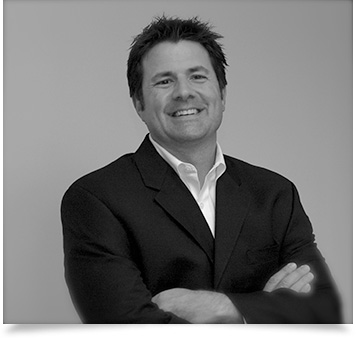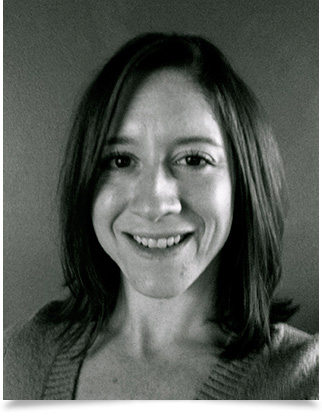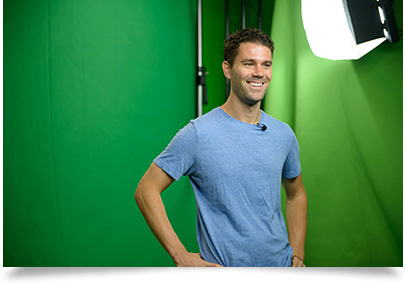Alumni Advantage Newsletter

Are you interested in receiving the 'Alumni Advantage' newsletter? If so, please click below to subscribe.
SubscribeDecember 2013 Articles:
- New College Grads: Hard Work and Doing the Right Things Can Land You a Job
- Think Strategically
- Three Steps to Nailing Your Interview
Alumni Advantage is a newsletter for current students written by members of the National Professional Advisory Board and their colleagues. It provides insider advice, insight and inspiration so that, when our graduates enter the real world, they are ready to rock it.
New College Grads: Hard Work and Doing the Right Things Can Land You a Job
Mark Hayden

Mark Hayden
During our last Professional Advisory Board meeting at the beginning of November, some colleagues and I had the opportunity to
sit down with some students and talk about their careers. They were juniors and seniors
mostly, and what I found was that most of them are willing to do what needs to be
done to find that first job, but they really don't know what to do.
This group was full of some really hard-working kids. Whether it was overwhelming
extracurricular activities in a dozen or so organizations or working 30+ hours a week
bartending or waiting tables, none of them expected anything to be handed to them.
And that's where our board members were able to make the most impact. From resume
review and portfolio assessment, three things stood out as "Eureka!" moments for the
bright kids attempting their first foray into the workforce:
- Business Cards: One young pro-to-be told me that a professional career counselor (not with the university, I hope) told her that business cards were antiquated. Everything is electronic now. Not true. She needed business cards because most professionals still carry them. And if you want one, you have to give one. It needs to have everything that you'd put on the header of your resume, plus a link to your portfolio and custom LinkedIn URL. Which brings me to my next tip …
- LinkedIn Profile: I've heard from a number of recruiters that this is where the searches are being conducted now. Monster.com and CareerBuilder are hemorrhaging recruits as companies turn to LinkedIn to find and research candidates. I advised every student to make sure his or her LinkedIn account was up to date and tight. And to be sure to grab the custom URL with their name on the end. Here's mine: www.linkedin.com/in/markhayden64/. Feel free to connect.
- Resume: You still need it. For now anyway. But I think LinkedIn will replace it very soon. That's both good and bad news because LinkedIn is a template. If you're a creative type, the quality of your first impression will be based upon the strength of your content, not the layout. I used to love seeing how designers approach their resume. I never hired anyone because of a great resume, but I've taken interviews because of it. Make sure your content on your LinkedIn matches your resume. In other words, the work dates on your resume match the dates on your LinkedIn profile. Trust me, they'll check.
- Portfolio: Every student (and professional for that matter) should have one. Both online and hard copy. Whether marketing, creative, media, account service, or account planning, the online portfolio allows you to show examples of the work on your resume or LinkedIn profile. For marketing, account service and planners, case studies on class projects or outside work give you something of depth to talk about once you get the interview. For creative types, well, every creative from writer, designer, art director, or interactive should have a portfolio. If you don't have one, you should get started on it now.
- Blog: I chatted with a young lady who said she wanted to be a writer. I asked, "What are you writing now?" She said, "Nothing. Only class work." I told her that she really didn't want to be a writer. Writers write and you have to love it to be it. She was a public relations major graduating in a year. I suggested that, after a lot of soul-searching, she could start blogging – that is, if she still wanted to REALLY be a writer. She may do it. She may not. It doesn't matter because there are thousands of other students who want to be writers and They Are Writing. I did meet a student who wanted to be in account service and she WAS blogging. I wanted to hug her. Then introduce her to the "writer" I had met earlier.
I'm not a recruiter, but I've hired some really good talent in my career. I think
I can spot it (yep, we all think that). The key is: if you want hard-working people,
you have to hire the people who work hard.
And there are plenty of them from Texas Tech University coming into the workforce.
Mark Hayden is founder and head cook of BREAKFAST at 12, a brand experience and marketing firm based in Houston, which helps clients understand their brands and create ideas that engage stakeholders and transform them into brand ambassadors. Prior to BREAKFAST at 12, Hayden was vice president of marketing for Farouk Systems. He earlier co-founded Parker:Hayden Inc., an integrated branding and marketing firm, which later merged with BrandExtract where he assumed the role of chief communications officer. Hayden was an investor and director of marketing for eRealty.com, and has held various positions with The Adcetera Group, Sysco Corporation, Anderson Advertising in San Antonio, Texas, and Winius-Brandon Advertising in Houston.
Think Strategically
Aimee Valentine

Aimee Valentine
Webster Dictionary defines strategy as a plan, method or series of maneuvers or stratagems
for obtaining a specific goal or result. Strategic thinking is a critical skill for
the majority of roles in the communications industry. As a communications professional,
you will apply strategic thinking for clients every day. Why would you not do the
same for your own career path? When thinking about a first job and building a career,
it is important to formulate specific goals and a strategy for achieving those goals.
Do your research. Behind any great strategy is A LOT of research. Pay attention to
trends in the industry, what's new and upcoming, and where growth is occurring. These
will help you identify opportunities for a first job as well as what type of experience
will be beneficial to your career moving forward. Not to mention this will be excellent
prep work for your upcoming interviews.
Before applying, it is important to decide on a specific role and to focus your energy
toward that goal. You'll find more success in your job search and interview process
if you are focused on a specific type of position and have catered your research,
preparation, and hopefully, internships as much as possible to that role. Employers
are looking for candidates who show genuine interest toward a specific area. It gives
the impression you are passionate about the role and are more likely to maintain the
position long term.
Reach out to people working in the role you would like to pursue. Find out how they
started. Ask them about their day-to-day functions and get a better idea of what the
job actually consists of on a regular basis. Most professionals are happy to share
their stories and advice with young aspiring protégés. They are real people just like
you, and the worst they can do is not respond.
Once you've identified a specific position you are interested in, build a strategy
for achieving that goal. Take advantage of all the opportunities the college has to
offer and use them strategically. There are so many opportunities for involvement
and networking, it may not make sense to attend them all. Make the most of your precious
time by choosing your activities wisely. When considering networking events, think
about who is likely to attend and prioritize appropriately. Attend events and join
groups that align with your goal.
The communications industry is extremely competitive. Approaching your job search
and career with specific goals and a strong plan for achieving those goals will set
you apart and on a path for success. Do your research, determine your goal, and create
a strategy for achieving that goal and you will succeed.
A native of Texas, Aimee Valentine received a bachelor's in advertising from Texas Tech University and an M.A. in radio, television and film at the University of North Texas. She is a seasoned media advertising professional with seven years of experience as a media planner at agencies including TracyLocke and ClickHere. Currently, Valentine is focused on market research in the area of digital media. As a technical account manager for Nielsen, she is involved in innovative online audience measurement studies and services.
Three steps to nailing your interview
Joe Fairless
First, get to know the interviewer.
If you're interviewing in their office it should be pretty easy because they'll have
something hanging on their wall that you can ask about or comment on, i.e., a drawing
from their child, pictures of their loved ones, a diploma from their alma mater, news
clippings of their achievements, or the best seller they're reading, etc.
If the interview is in a conference room or a location other than their office, then
asking "How was your weekend?" or "Plans for this weekend?" are good ways of gathering
some personal information about them. But don't stop there. Gauge their body language
and non-verbal communication cues, and if possible, continue talking about them for
a minute or two. But, of course, only do it if you're interested in what they're saying.
Don't fake interest because people see through it.

Joe Fairless
Another way is to check out their LinkedIn profile before and come with some talking
points about their alma mater. Did their school just make it to the Sweet 16? Are
they involved in a non-profit? Did they just get an article published?
The goal is to make them feel comfortable by talking about things they are familiar
with, which, in turn, will help you become more comfortable. It also gives you a personal
point to reference in your follow-up email that connects with them outside of the
standard work stuff.
Second, let them get to know something non-work-related about you.
Find some way of letting them get to know you personally. Bonus points if your personal
fact ties back to their personal reference point. For example, I used to work at a
daycare in college, and I babysat on the weekends after college to help make ends
meet. Anytime I speak to someone with kids (interview or not) I mention that because
it instantly helps us connect and share the common experience of being around children.
Now, I'm not naïve enough to think babysitting is the same as having kids, but my
experience does help establish a personal connection with parents.
Lastly, show you're uniquely qualified for the job.
Before the interview, I identify things that make me uniquely qualified for the job
so that nobody else can compete with me on them. For example, when interviewing for
a vice president position, which I ended up getting at SS+K, I talked about how I
helped grow Mr Youth from seven employees to more than 100 and how I helped to transition
the agency from a scrappy, event-marketing focused company to a strategic, digital,
and social media agency that's playing with the big boys. I likened it to SS+K because
SS+K was experiencing growth and showed that my time at Mr Youth directly translated
into helping SS+K accomplish similar success.
Now go get that job!
Joe Fairless graduated with an advertising degree in 2005. He moved to New York City and worked his way up to become a vice president at an award-winning ad agency before his 30th birthday. He decided to leave the ad agency world last January and started a real estate investing company, Fairless Investing. In just six months the company has more than $6 million worth of assets and is growing. He mentors real estate investors across the country.
Archive
College of Media & Communication
-
Address
Texas Tech University, Box 43082, Lubbock, TX 79409 -
Phone
806.742.6500
